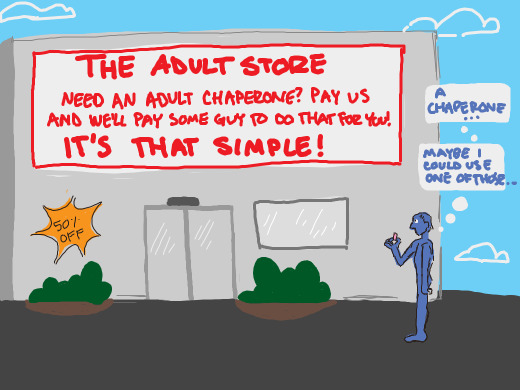#backlog from june
Explore tagged Tumblr posts
Text
Victor readjusted the shovels on his shoulder and stepped gingerly over an old, half-sunken grave.
In my opinion, opening lines can make or break a book. It’s the hook that makes me want to keep reading. Not in all cases, but in a lot of cases. One of my absolute favorite opening lines is from Vicious by V.E. Schwab. I was so intrigued by this line that I had to figure out why Victor was in a cemetery and why he was digging up graves. Vicious turned out to be one of my favorite books of all time with one of my favorite asexual leads.
Of course I had to share my Victor Vale magnet from Rainbow Crate for the third day of the anniversary challenge. I also couldn’t pick just one, so swipe to see my second favorite magnet inspired by The Song of Achilles by Madeline Miller.
What book(s) has(have) your favorite opening line(s)?


#vicious#ve schwab#victor vale#the song of achilles#madeline miller#patroclus#achilles#patrochilles#RCAnniv2023#rainbow crate#rainbow crate book box#lgbtq reads#lgbtqia#queer reads#queer book recs#read with pride#read queer all year#stardustandrockets#backlog from june#june 13
12 notes
·
View notes
Text

quick study of that one concept art Vergil by Ikeno because I felt like I needed a refresher on 3V's features
#dmc#devil may cry#vergil#dmc3#dmc 3#devil may cry 3#my art#lads......... im artblocked as fuck#not like as in i cant draw or dont feel up to it but more like my exec dysfunction is so bad it might as well be a full artblock#my wips.... my poor suffering wips........#also i still have backlog to post but uhhhh#its mostly red dead and detroit (whoops completely forgot to post those) and smth dmc that i dont wanna post until june#bc its very summer themed#and while i DO wanna post my other fandom back log#weeeeh im afraid of breaking this dmc streak idk why#my brain is weird#it thinks were in Dmc Mode now and I Cannot Possibly Do Anything Else#i think the specific type of autism i have needs to be studied by scentists#anyway#hope you enjoy the Burgl#this was actually brought by: the fact i was trying so hard to force myself to draw SOMETHING#but i realized every time i tried to draw 3V hes like.#hes become SO far removed from the base model in my style#and i mean. thats kinda normal with art and stylisation and not even a bad thing BUT i really want him to be a bit more on model so#here
196 notes
·
View notes
Text
Okay everyone, help me decide which long fic I want to write for the fall. Yes, yes, I know I am currently on a break and have two long fics already in the works (which I am working on, don’t you worry) and like a bunch of one shots and stuff that I’ll be posting after the break, BUT I am too excited about all of it to not talk about what comes after that so… poll time.
I have two options, both of which I will write either way, but this may help me determine which comes first. Descriptions are below the poll!
Fives Lives - a reimagining of what the mission to rescue Echo would’ve been like if Fives had been alive. Sticky, messy, emotional, and a heartfelt reunion imminent.
The Think Echo is Dead - The Batch returns from a mission without Echo. The rest of the batch is convinced he died but Crosshair isn’t so sure. Neither is Rex. The two of them break every rule in the book to get back to enemy territory and, hopefully, find Echo. Angst, emotions, and a lot of fighting between Crosshair and Rex who both want the same things but are… not communicating well.
Bonus points if you reblog and say why you voted for the one you did… I may even post some previews for the one that wins :)
Happy Voting!
#polls#the bad batch#the bad batch fanfiction#Star Wars#star wars fanfiction#I am steadily working on fics to post when I get back from my break#so while I post those I want to work on the fall fics#my break is currently planned to last through June#I’ll have a big backlog of fic to post by then so… yay!!#but I like planning and I like writing ahead so here we go#I wish there was like… a 3 day option…#a day seems too short but a week????#just let me customize the poll time! pls!
21 notes
·
View notes
Text



A Blorbo You Treat Nicely, Right?
#non mdzs#ask#I've seen what people do to tumblr blorbos. I cant go back in the horse plinko again...please my bones aren't strong enough#I'm made of a gelatin like substance. Very Flammable. Terrible for plinko. Ill just bounce around and wail miserably.#You cannot fool my by putting 'horse' on the box. Yeah It made me curious and wander over here. Yeah I wanna see the horses.#Oh they're in the plinko? Oh well then-#jokes aside I am very touched to have reached silly blorbo status. I hope to keep bringing you joy!#I am simply just having fun and I'm glad people enjoy my little jester dances!#Yeah one of these asks is from June...I'm slowly eating away at the backlog....I promise....#theres so many sweet and funny asks I want to properly draw for...I promise I read them all and go -> B*)
235 notes
·
View notes
Text

The Lesbiana's Guide to Catholic School by Sonora Reyes 5/5 stars | 📖 | Read 5/21 - 5/26, 2023
First, we must all take a moment to appreciate how amazing the cover is. The main character, Yamilet, is a Mexican American lesbian and such an endearing character. While her journey throughout the book is a bit of a rollercoaster, it was heartwarming to watch her grow, gain confidence, and get a happy ending. Reyes creates a beautiful story about family and community prevailing above everything else, while not sacrificing any realism.
The In-Between by Katie Van Heidrich 4/5 stars | 📖 | Read 6/1 - 6/2, 2023
Targeted to a middle grade audience, this memoir in verse was a quick read, despite the difficult subject matter. While the book reflects the real life events of when Van Heidrich’s family was unhoused, the use of present tense and her 13-year-old perspective gives the story a sense of immediacy that captures the raw emotion of the situation— the frustration, anger, and grief all mixed up with the confusion of not being able to fully grasp the situation. The only reason that this wasn’t five stars is that the writing felt repetitive at times, but that may stem more from my personal issues with poetry than with Van Heidrich’s writing.
Missing Dead Girls by Sara Walters 2/5 stars | 📖 | Read 5/29 - 5/31, 2023
This was on the “new” shelf in the library’s teen section and I picked it up because the summary intrigued me. I must admit though that I was quite nervous about it because often these YA murder thrillers end up disappointing… and this one was no different. What bothered me most consistently was how the love interest, Madison, is treated as a manic pixie dream girl of sorts— a trope i disdain. Besides that, for its 225 pages, the book moves slowly with much internal monologue and flowery language that does little to take the plot anywhere.
#reposting from my bookstagram account... do not mind me#booklr#book review#ya books#middle grade books#library books#backlog#may 2023#june 2023#the lesbiana's guide to catholic school#sonora reyes#the in-between#katie van heidrich#missing dead girls#sara walters
4 notes
·
View notes
Text

Prompt for this one was "A blue man holding a pink eraser looks at an adult store." Knowing what adult store means but kind of tired of the same jokes being made all the time I tried to do something fresher... but this is kind of eh. Not every concept is a winner. I still think it's funny in my personal flop way
#ghostly posts#my art#one layer andy#if I didn't feel like I was falling apart I probably could have spent more than like 15 minutes on this and gotten more detailed.#also I'm posting backlog#like the last one I tagged w halfbloodsix is from June. lol
6 notes
·
View notes
Text
more dnd art in advance of the campaign starting

more of my beloved małgorzata, same pose as my previous art of them but in their school uniform this time (they do keep the flashy-ass boots and necklace, though)
#dnd oc#dnd oc art#mars speaks#mars does art#oc: małgorzata kaczka#i was SO EXCITED when our dm came up with the uniforms and Immediately drew this#which is why this is from february even though i'm posting it now#i have a hell of a backlog of art okay?#and małgorzata is my fashionable little meow meow#june 2024 art dump
4 notes
·
View notes
Note

thank u so very much it is a position i take with high honor
2 notes
·
View notes
Text

I can now calculate exactly how many images of Yes Man I have accrued per year bc I remembered telling someone this in 2020
I have 1400 pics of yes man on my phone, am I cooked??
#that means in the first year of being yesmanpilled I gathered as many images as I have gathered in the past 5 years#because that’s 700 from Jan 2019 to June 2020#and now I have just over double that#though that’s unfair because in 2019 it was fresh to me so I had a 9-year backlog of yes man content to explore on the web already#whereas the past 5 years have been more of a steady trickle where I collect it in bits n pieces as it’s posted anew#looks like I’ve gathered about 145 images per year
24 notes
·
View notes
Text
What's a book that makes you feel seen?
It's only within the last few years that I've seen myself and my experiences regarding my sexuality in books. One of those books is The Charm Offensive by Alison Cochrun.
Charlie's experience with discovering his demisexuality, along with his anxiety, really spoke to me. Not that I was on a dating show to rehabilitate my image or anything. I was in college trying to survive the hardest year of my degree plan. This book was the first time I'd seen demisexuality written from a discovery standpoint. Most other ace rep I'd read up til this point was about characters who already knew they were ace or their sexuality wasn't even a point of the book. Even though this is an achillean book with gay main characters, much of what Charlie goes through spoke to me. Especially when I didn't find my own queerness until I was an adult.
Since then, I've added a few more books to the list that make me feel seen: Never Been Kissed by Timothy Janovsky and Loveless by Alice Oseman.
Remember: whether you are out or not, know you are greatly loved and my account is a safe space. 🌈 Bigots can't and won't win.

#the charm offensive#alison cochrun#the dead romantics#ashley poston#out there into the queer new yonder#saundra mitchell#a beautifully foolish endeavor#hank green#rainbow books#lgbtq reads#lgbtqia#queer reads#queer book recs#read with pride#read queer all year#ace books i've read#stardust book recs#stardustandrockets#backlog from june#june 9
7 notes
·
View notes
Text

[art backlog: june 1, 2023]
i still like this one, i tried a couple new things—pixel brush, smaller canvas size (though this one wasn’t on purpose lmao, i copy pasted the sketch from an aggie), different coloring style— and got to stylize their calamity forms, it was fun!! i’d like to redraw it at some point, i have more ideas for these designs that i’d like to experiment with
thank you tumblr for not fucking over my image quality with the smaller canvas <3 unlike Someone <3 (well it’s not perfect but it’s better)
#armadillo art#art backlog#amphibia#sashannarcy#calamity trio#marcy wu#anne boonchuy#sasha waybright
316 notes
·
View notes
Text

I just released another monthly smut, thus increasing the backlog in size (it contains over 80k words!). This month's interactive smut and the backlog are available on my Patreon for my patrons in Outraged Fox tier. Now, the backlog includes:
June 2023: Kinda toxic smut with Marcus in a cave
July: Quinn wakes you up from a nightmare and is pretty weird about it
August: Niall gets ambushed by you in the middle of naked druid rituals (as one does) (with female Hati)
September: Kinda toxic Legate smut
October: Fooling around with a dom Camilla in her wine cellar (with female Hati)
November: You become the offering to Tinsae's goddess (another perfectly normal day in the peaceful town of Moguntiacum)
December: A drinking game with Niall and Marcus
January 2024: Reading poetry with Marcus
February: Quinn hogties you
March: Monster loving
April: Bondage with Niall (Niall is the one tying you up)
May: A trip with Tinsae
June: Revenge with Camilla (feat. Legate)
July: A cute little date with Marcus
August: In a closet with Niall (feat. Marcus and LT vibes)
September: A (slightly tragic) date with Quinn
October: How Samhain celebration could've ended with Tinsae and Camilla
November: Monster loving 🧌
December: A drama-packed scenario with Marcus and Quinn
January 2025: A sequel to the kinda toxic Legate smut (with male Hati)
February: Camilla punishes you (pegging included)
March: Niall is struck with a horny curse (by you)
April: Visiting an orgy with Niall and Tinsae
This month's chosen RO is Marcus 🙏
669 notes
·
View notes
Text
May-June 2024 best hockey tweet(s) of the day




tumblr decided I'm not allowed to post from my phone anymore so I had a backlog
#hockey twitter#nhl#nhl hockey#hockey#florida panthers#matthew tkachuk#leon draisaitl#edmonton oilers#new york rangers#new jersey devils#carolina hurricanes#washington capitals#pittsburgh penguins#stanley cup playoffs 2024#stanley cup playoffs
408 notes
·
View notes
Text
Steelheart Redux: Year 1 Retrospective
I meant to post this yesterday but forgot. Oops. Anyway, June 1st marked the official first full year of Steelheart Redux! For me, at least. While the comic didn’t go public until September, those who have been here since the start remember that I uploaded all of chapter 1 at once. That work started in June, so I consider that the comic’s effective birthday.
With that disclaimer out of the way: what a year it’s been! In 365 days, I drew 153 comic pages. That’s about 0.4 pages a day— a little shy of a page every other day. Granted, those numbers aren’t an even spread. I made all of chapter 1 in three months (68 pages) and then had to take a break for a while because of wrist strain (wonder how THAT happened…) and then the amount of backlog I had fluctuated wildly for a while. Some days I have more time and motivation than others. It happens.
Quite honestly, I’m mainly happy that I’ve stuck with the project. My worst fear was that I’d get a month or two into Actually Doing The Thing, then get bored, demotivated, and give up. Luckily, my brain has allowed me to stick with Redux with a level of consistency that is frankly unforeseen from me, and I’m just as motivated as I was a year ago, if not more, thanks to people's interest. I’ve said it before, but the reception to the story already regularly blows me away. I went into this with the expectation that it would take years for the comic to gain any real traction, if it ever happened at all. But here we are, a year in, with tens, if not hundreds of regular readers across multiple platforms. It’s an honor I don’t take lightly, and as I’ve said, I’m so, so grateful for the trust and support.
Looking back, the comic started on wobbly feet. That’s something I knew even at the time and had to make my peace with. Steelheart Redux is my first original story project, first long-form comic (first colored comic longer than a few pages, tbh), and first time I've ever really left the title of "fanartist" behind for longer than a month or so. I knew I was entering uncharted waters and that whatever I made, I'd later come to see as 'bad', or at least, not executed as well as it could have been. Unfortunately, the only way to get that experience and improve is to do it bad. So I did it bad!
STRUGGLES:
Chapter 1 is way too long. Not in terms of content, but in terms of page count. For some reason, I was utterly allergic to the idea of putting more than four panels on a page. While I do like the pacing of it, and the sort of slow ease-in to the world and the setting, I made way more work for myself than I needed to. I definitely could have cut at least 10 pages by compressing things without seriously hurting the pacing, and it would have saved me a lot of trouble. Figuring out how to "trim the fat" and get to where I'm going as fast as possible without making things feel rushed is still something I'm working on, but I'm a lot more intentional about things now that I know it can cost me time and physical strain. You can see the font size slowly shrinking throughout the comic's run as I pack more in, lol. Honestly, it kind of works.
I have various other nitpicks. I'm sparing myself from the general "I don't like how I drew that"s in terms of anatomy and such, as those are just an inescapable result of improving as an artist and not worth getting in the weeds over. I will raise my eyebrows over some lighting choices-- I went out of my way to plan out a way to make the nighttime section of early chapter 2 read as "night, but not dark", and then the entire bit was annoyingly dark as hell. Trying to get the purple DRACO to visually stand out from the concrete there was obnoxiously difficult. I don't think it's bad-- I like the 'scribble background' gimmick I came up with to save myself from having to do backgrounds there, for one thing-- but I don't think it would have killed me to brighten up that section a bit. Something to keep in mind for later.
Speaking of backgrounds. Maybe it's too early to say, but at least right now, changing the background style was a game changer. That was one of the largest time sinks of early pages, adding 2-3 hours to every page that had at least one or two backgrounds. They were doable, but tedious, and as time went on, I found myself enjoying them less and less, instead of more and more as I'd hoped. You can see details start to disappear as a result, as backgrounds stopped being a "fun worldbuilding element" and "visual element of the page" and became just "something I had to draw to get the page done". Changing the style to a much looser one has brought the fun back, and made it much easier to pack in all the details I actually enjoy drawing without getting bogged down in "is the perspective exactly right". I've written posts before about making things easier for yourself if you're doing a long-form project; this is honestly my best example.
GROWTH:
I feel like, looking back, I can see myself become a lot more confident with drawing various things. Steelheart Redux is filled-- intentionally and not-- with things I'm bad at drawing, which has forced me to improve at those things sheerly through unavoidable repetition. Mainly, this includes backgrounds, mechs (still can't get me to draw cars though LOL), full bodies, and profiles.


It's also interesting to see the way I draw characters change. Going into the comic, I'd already been drawing Arthur for years, but making pages forced me to really lock in his design and get comfortable with drawing it. While it's not too different in terms of content, it has a different 'feel' now. This, too, I know is inevitable, and honestly something I look forward to.


I've become a lot more confident in doing these things, which makes making pages less intimidating and lets me experiment more with layouts and angles I might have otherwise been afraid to try. It's nice! It shows in a lot of the end of chapter 2, which is one of my favorite parts of the chapter. I was worried about hitting those emotional beats, because they're setting up for a lot and really needed to feel meaningful, but I think I landed them alright. My character writing is still something I worry a bit about-- there's a lot of subtlety to these guys and this story I worry I won't be able to get across in a more visual story-- but that's something for me to increasingly focus on going forward.
Away from the comic, I've also improved a lot as a 3D modeler. My robot rigs have improved, and I have much better human bases to work off. I can also slam out a layout for a scene much faster, which is a nice time boost to my workflow.
Overall, despite the hurdles and rough edges of some of the early stuff, I'm incredibly proud of everything I've produced. This is the first time I've ever put my heart, body, and soul so thoroughly into a project like this, and I'd like to think it shows.
While we're still in somewhat of the early stage of the comic's story, I'm hoping I've made a solid foundation for myself. I'm so excited for what's to come, and hoping I can execute it even better, year by year.
64 notes
·
View notes
Text







INTO FOLKLORE: a folklore, evermore, & ttpd narrative playlist
The lives of several interconnected townspeople play out alongside their folkloric counterparts, answering the question: can we write our own endings…or are we destined to repeat the past?
insp. 1 2 3 4 5
[listen here] [visuals here] [follow along below↓]
CHAPTER 1: THE ROAD TO THE LOOKOUT 🛣️
gold rush -> exile -> chloe or sam or sophia or marcus -> this is me trying -> i hate it here -> epiphany -> hoax -> the prophecy
APRIL. James abandons a belated love confession over a misunderstanding at prom. Betty explores the folklore surrounding the local lookout, where a spirit still awaits her exiled lover.
CHAPTER 2: CLOSETS OF BACKLOGGED DREAMS 🎥
seven -> robin -> my boy only breaks his favorite toys -> peter -> coney island -> champagne problems -> the bolter -> marjorie -> clara bow -> thank you aimee -> the 1 -> dorothea -> i can do it with a broken heart -> mirrorball
MAY. On the precipice of graduation, aspiring actress Dorothea contemplates a proposal from her childhood sweetheart. 1950s television personality Marjorie Finlay faces a similar dilemma.
CHAPTER 3: FOREVER IS THE SWEETEST CON 🛸
cowboy like me -> I can fix him (no really I can) -> the tortured poets department -> peace -> august -> down bad -> loml
JUNE-AUGUST. James and August indulge in a whirlwind summer romance while hiding their true intentions. In the Summer of Love, two con-artists finally meet their match: each other.
CHAPTER 4: PROMISED TO ANOTHER 🌿
guilty as sin? -> ivy -> the lakes -> but daddy I love him -> illicit affairs -> the manuscript
SEPTEMBER. A 19th-century poet risks a prosperous engagement for true love. An affair between Betty's father and a bright young journalist proves to be anything but a fairytale.
CHAPTER 5: THE LOUDEST WOMAN THIS TOWN HAS EVER SEEN 🐈⬛
willow -> the albatross -> mad woman -> cassandra -> who's afraid of little old me? -> the last great american dynasty
OCTOBER. Inez hosts a Halloween party at a house rumored to be haunted by a historic town pariah. In the late 1600s, a woman is accused of witchcraft.
CHAPTER 6: NO BODY, NO CRIME? 🔍
tolerate it -> the black dog -> right where you left me -> fortnight -> it's time to go -> so long, london -> my tears ricochet -> how did it end? -> no body, no crime -> fresh out the slammer -> florida!!! -> happiness
NOVEMBER. Upon discovering her husband's infidelity, Betty's mother has a breakthrough about a long-forgotten cold case from the late 80s.
CHAPTER 7: 'TIS THE DAMN SEASON 🧣
evermore -> I look in people's windows -> the smallest man who ever lived -> closure -> betty -> imgonnagetyouback -> cardigan -> 'tis the damn season -> the alchemy -> so high school -> long story short -> invisible string
DECEMBER. Conflicts come to a head as everyone returns home for the holidays. The spirit at the lookout finally finds closure.
#tswiftedit#candy swift#taylor swift#ttpd#the tortured poets department#folklore#evermore#photopeablr#tsgraphic#taylor swift graphic#graphics#playlistedit#playlists#long post#ttpdedit#folkloreedit#evermoreedit#*playlists#*intofolklore#my edit
352 notes
·
View notes
Text

I started this in june last year, at the farm park up the road from my house, and it was sitting around in my art folder. so since it's plein air april and I'm trying (TRYING) not to start new pictures until I've cleared a bit of wip backlog, I thought I'd finish it.
I'm feeling so much better on my changed medication routine that hopefully the art drought has ended, but I'm not going to say it too loudly, just in case!
#artists on tumblr#trees and forests#plein april#plein air april#plein air#landscape#surrey#nature#nature art#sketch#english countryside#countryside
78 notes
·
View notes